- News
- Reviews
- Bikes
- Components
- Bar tape & grips
- Bottom brackets
- Brake & gear cables
- Brake & STI levers
- Brake pads & spares
- Brakes
- Cassettes & freewheels
- Chains
- Chainsets & chainrings
- Derailleurs - front
- Derailleurs - rear
- Forks
- Gear levers & shifters
- Groupsets
- Handlebars & extensions
- Headsets
- Hubs
- Inner tubes
- Pedals
- Quick releases & skewers
- Saddles
- Seatposts
- Stems
- Wheels
- Tyres
- Tubeless valves
- Accessories
- Accessories - misc
- Computer mounts
- Bags
- Bar ends
- Bike bags & cases
- Bottle cages
- Bottles
- Cameras
- Car racks
- Child seats
- Computers
- Glasses
- GPS units
- Helmets
- Lights - front
- Lights - rear
- Lights - sets
- Locks
- Mirrors
- Mudguards
- Racks
- Pumps & CO2 inflators
- Puncture kits
- Reflectives
- Smart watches
- Stands and racks
- Trailers
- Clothing
- Health, fitness and nutrition
- Tools and workshop
- Miscellaneous
- Buyers Guides
- Features
- Forum
- Recommends
- Podcast
review
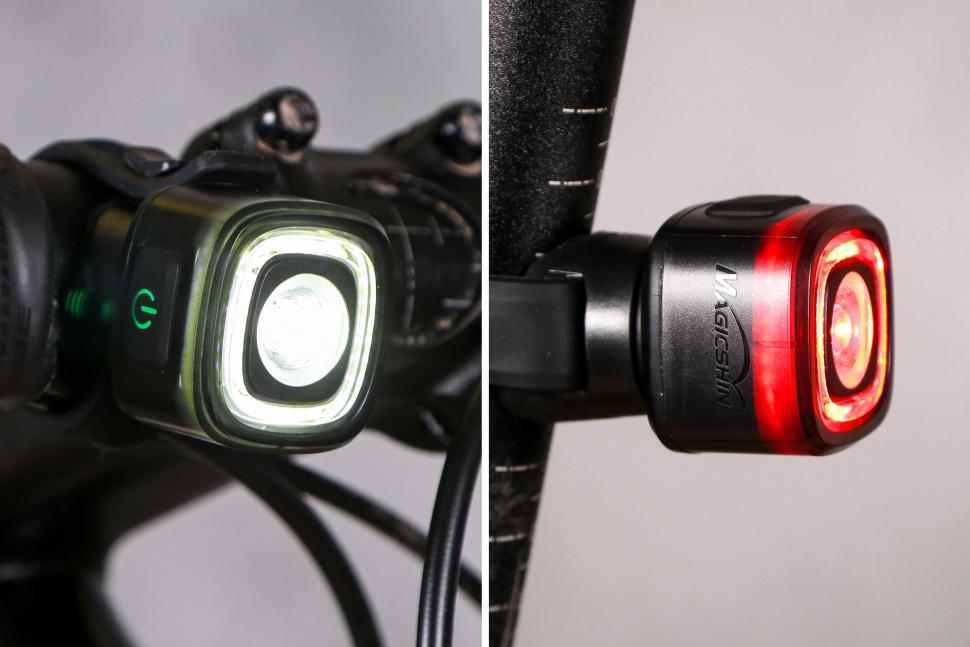 2022 Magicshine Seemee 150 Combo.jpg
2022 Magicshine Seemee 150 Combo.jpg£59.99
VERDICT:
Well-designed lights, though the front would benefit from a 150-lumen daylight flash
Solid build quality
Generally sensible modes
Good run-times
Front would benefit from flashing daylight and smart modes
Some might grumble about older micro-USB charging
Weight:
52g
Contact:
At road.cc every product is thoroughly tested for as long as it takes to get a proper insight into how well it works. Our reviewers are experienced cyclists that we trust to be objective. While we strive to ensure that opinions expressed are backed up by facts, reviews are by their nature an informed opinion, not a definitive verdict. We don't intentionally try to break anything (except locks) but we do try to look for weak points in any design. The overall score is not just an average of the other scores: it reflects both a product's function and value – with value determined by how a product compares with items of similar spec, quality, and price.
What the road.cc scores meanGood scores are more common than bad, because fortunately good products are more common than bad.
- Exceptional
- Excellent
- Very Good
- Good
- Quite good
- Average
- Not so good
- Poor
- Bad
- Appalling
The Magicshine SeeMe 150 Combo is a relatively potent pairing, giving a decent amount of punch for most situations. Run-times are surprisingly good, too, even with the rear light's 'braking' function engaged.
Having your rear light incorporate a brake light function isn't new, there have been various designs over the last few years, but the SeeMe 150's does seem to work better than others I've used.
Essentially, the light's sensor recognises when the bike's pace slows and engages the light's maximum output for approximately two seconds, regardless of what power setting you've chosen.
The problem I have encountered with other models, including the bigger Magicshine SeeMee 200 and the Xeccon Mars 60, is their sensitivity – a tendency to engage too readily – and to remain on longer than necessary.
The Xeccon's braking function, for example, can be triggered at the first hint of washboard tarmac as well as on minor, momentary losses of tempo on a climb. It will then remain on for a good five seconds or so after I've picked up speed – which also then adversely affects battery life.
While not perfect, Magicshine has this much better sussed with the 150. It doesn't seem to be triggered by lumpy, bumpy tarmac or those rumble strips designed to slow traffic near schools, nor does it remain on unduly when I've accelerated again.
> Buyer’s Guide: The best 2021/22 front lights for cycling
It's assertive rather than aggressive – noticeable but not overkill, I've been told by other riders and road users, some of whom say they didn't necessarily perceive me 'braking', but the brighter output grabbed and held their attention.
The braking function still has some impact on run-times, and it's difficult to put a precise figure on this. But should reserves tumble, the light will disengage and default to the lowest 8-lumen mode. To date, I've never been plunged into darkness, so it seems a reliable failsafe.
The brake light function is optional, and can be disengaged if it's not required. You turn it on and off when the light itself is switched off.
Modes
As for the usual lighting modes, the front has four: Low (45 lumens), High (150 lumens), Flash (45 lumens), and Group ride/eco (8 lumens), with run-times cited as 10hrs 20mins, 5hrs 10mins, 15hrs, and 38hrs 30mins respectively.
The rear has six modes: Low (8 lumens), High (45 lumens), Flash (45 lumens), Group ride/Eco (8 lumens), Smart Day (150 lumens), and Smart Night (45 lumens). Run-times are cited as 18hrs 20mins, 5hrs 20mins, 15hrs, 38hrs 30mins, 13hrs, and 10hrs 30mins.
A memory function means the lights will default to the last one chosen.
Build & quality
The lights feel reassuringly solid, and both are well sealed from the elements, with an IPX6 rating (heavy rain). They also meet ANSI/NEMA FL1-2009 standards, meaning they'll survive being dropped onto a hard surface from a metre, which I can confirm they do – oops. They've also passed my garden hose test with flying colours.
Each light's switch is simple and easy to spot, and incorporates a simple but effective battery life indicator: green for good, red for power is dipping, and flashing red means it's about to auto kick-down.
Mounts
The lights use the same watch strap and saddle rail mounts as the others in the SeeMee family. I've used the 180 and 100 interchangeably.
The front works well on oversized bars, and even head tubes and fork legs, while the rear will fit seatstays and box section tubing as well as seatposts between 25.4 and 31.8mm diameter.
In use: front light
Although I'd prefer a 150-lumen flashing, the High constant is surprisingly effective as a daylight running mode, with oncoming traffic seeming to take notice at 80 or maybe 100 metres. It's also adequate as a solo light for well-lit town centres.
I've also been pleasantly surprised by the 45-lumen flashing's presence in low light – though 'flashing' is more accurately described as a quick, distinctive pulsing.
The 8-lumen Eco/group mode is brighter than the numbers might suggest – closer, I'd say, to other models' 15-lumen modes – though aside from economy, it's not a setting I'd choose for solo rides.
In use: rear light
The rear has more features and is by far the more extrovert. As well as the braking function it has those two 'smart' modes, Smart Night and Smart Day. Simply put, you select this function if you want the sensor to decide when to turn the light on or off.
The 150-lumen Smart Day is a fast flash, while the 45-lumen Smart Night is a slower tempo, closer to a pulse in fact.
On the darkest roads I've preferred to select the modes manually rather than rely on the sensor, but otherwise I've felt confident enough to leave it to the technology, and it seems very good at selecting the appropriate setting for the environment.
The Smart Day copes with brighter contexts very well. Consensus suggests it's not as bombastic as the SeeMee 200, but not far behind, with friends suggesting it can be seen at 400 metres.
On dawn rides I've found the 45-lumen flashing perfectly adequate, with ample punch, though it's better still in very low light, after dark proper. I've been happy enough to belt along A roads for a few miles, confident that approaching traffic would spot it at a good distance – a friend reckoned they could pick me out at 300 metres.
With the steady 45-lumen counterpart, this tumbled to around 100 metres.
I've also felt confident relying on the auto kickdown – it's never failed to default to the 8-lumen mode and get me home. It's a little subtle for the backroads but more than adequate for built-up areas as well as being easy on the eye at close quarters, so fine for a group ride.
Run & charge times
These have been within a few minutes of those cited, front and rear (with the braking function off). The braking mode does knock things a little, but much will depend on gradients and ride duration.
Charging, zero to hero, takes 1hr 15mins from the mains, 1hr 30mins from a laptop or similar device. It takes a bit longer from the dynamo USB but is achievable, so I cannot see any issues on multi-day rides.
The lights charge using a micro-USB cable – slightly old fashioned, some might say, but ubiquitous and therefore easily replaceable. The charging port is located on the back of each light rather than the base, which helps keep them sealed from the elements when clipped into their mounts.
Value
Although 'braking' functions on rear lights are becoming more popular, there aren't many sets comparable to the SeeMe 150 Combo.
Ravemen lists its £32.99 CL06 rear light (which Steve tested last year, and I've run for some time) as being part of a set with the FR150 front light, but the front doesn't seem to be imported into the UK, alone or as part of a set (though it is available for £24.99 from BikeInn). Like Steve, though, I find the CL06 sensor technology over-sensitive.
The SeeMe combo does compare well against Bontrager's Ion 100 R/Flare R City Bike light set at the same price. Despite only pumping out 100 and 35 lumens (front and rear respectively) the lights are still quite potent, but aside from the front having a daylight flash mode, they can't match the Magicshines in terms of presence, nor is there any braking tech here.
> Buyer’s Guide: 10 of the best rear lights
You can spend more for higher outputs – Knog's Blinder Square Light Twinpack is £74.99 and pumps out 200 lumens (front) and 100 (rear), both with very distinctive flash patterns – but you're not getting any braking or smart tech here.
There are cheaper options if you aren't set on a compact front light or smart tech – Cateye's AMMP 200 & ViZ 100 set, for example, costs just £44.99, with higher outputs front and rear (I tested the ViZ 100 last year).
Conclusion
I've enjoyed testing the Magicshine SeeMe 150 combo. Run-times and output are generally favourable, and it seems to have the braking function better sussed than many. That said, I think a 150-lumen daylight flash is a missed opportunity on the front light. And having a smart mode up front would be handy too.
Verdict
Well-designed lights, though the front would benefit from a 150-lumen daylight flash
road.cc test report
Make and model: Magicshine Seeme 150 Combo
Size tested: One size
Tell us what the light set is for and who it's aimed at. What do the manufacturers say about it? How does that compare to your own feelings about it?
Magicshine says, "Small, simple but mighty, the SEEMEE 150 combo is dedicated to road cyclists, urban cyclists, and commuters"
Tell us some more about the technical aspects of the light set?
From Magicshine:
260° Degree Visibility & 150 Lumen max output
Garmin style quarter turn mount
Tail light charging in 1 hours and running for 27 hours
Brake sensor
Motion sensor
Ambient light sensor
Low power mode
Memory function, smart battery indicator and USB rechargeable
IPX 6 waterproof
Application: Urban, Road, Daily Commuting
260° DEGREE VISIBILITY
260° lighting visibility gives you all-around protection.
EASY-TO-READ POWER INDICATOR
Built-in power indicator in the switch, you'll know when your light needs recharging.
SIMPLE TO OPERATE
A long press will turn the light on/off, and a short press will cycle through the modes.
BRIGHTER WHEN YOU BRAKE
The built-in brake sensor automatically switches to the highest output when braking, to warn people behind you that you've slowed down a lot.
AUTO-ADJUST BRIGHTNESS
An integrated ambient light sensor adjusts the brightness based on the surrounding automatically.
MOTION SENSOR
When you aren't riding, the taillight will enter into sleep mode after 5 minutes of inaction and auto-activate on any vibrations. In this way, there are no worries when you stop riding and waiting for the green traffic light. Just take a break, and forget about it.
LOW POWER MODE
Under 10% power, the tail light will automatically turn on the low battery mode (GROUP RIDE) and turn off the sensors to achieve longer battery life.
Rate the front light for quality of construction:
8/10
Rate the rear light for quality of construction:
8/10
Sturdy and well sealed from the elements.
Rate the light set for design and ease of use. How simple were the lights to use?
7/10
It's worth getting familiar with engaging/disengaging the rear light's braking function.
Rate the front light for the design and usability of the clamping system
7/10
Rate the rear light for the design and usability of the clamping system
7/10
Rugged and reliable tenure to most diameters of tubing. Aside from handlebars and seatposts, they will also fit on some box section tubing and relatively slender seatstays.
Rate the front light for waterproofing. How did it stand up to the elements?
8/10
Rate the front light for waterproofing. How did it stand up to the elements?
8/10
Rated IPX6 (heavy rain), so should cater for most situations. The port covers are a very secure fit and sensibly positioned away from the elements. Both have passed my hosepipe test with flying colours.
Rate the front light for battery life. How long did it last? How long did it take to recharge?
8/10
Rate the rear light for battery life. How long did it last? How long did it take to recharge?
7/10
Relatively quick to charge, claimed run-times are accurate, and the auto kick-down has been consistently reliable.
Rate the front light for performance:
7/10
Rate the rear light for performance:
8/10
The rear has the edge in terms of modes. The front light, in my view, would benefit from a flashing daylight setting.
Rate the front light for durability:
7/10
Rate the rear light for durability:
7/10
No obvious weak spots throughout the test period.
Rate the front light for weight:
7/10
Rate the rear light for weight:
7/10
Light but feel reassuringly well made.
Rate the light set for value:
6/10
Tell us how the lights performed overall when used for their designed purpose
Overall, it offers a good blend of output and economy. The rear's 45 lumens for a night mode may not rival some but seems dark enough for the sticks, while the 8-lumen eco seems brighter than numbers may imply and has decent presence around town. While I'm a little cautious around relying upon sensors, this one seems very good at selecting the appropriate setting for the environment.
It's much the same story up front, although personally I would have liked a flashing 150-lumen daylight mode on the front, but not to the point where it's a deal-breaker.
Tell us what you particularly liked about the lights
Compact, good choice of modes and output.
Tell us what you particularly disliked about the lights
That there's no flashing daylight mode on the front light.
How does the price compare to that of similar products in the market, including ones recently tested on road.cc?
Although 'braking' functions on rear lights are becoming more popular, there aren't many sets comparable to the SeeMe 150 Combo.
Ravemen lists its £32.99 CL06 rear light (which Steve tested last year, and I've run for some time) as being part of a set with the FR150 front light, but the front doesn't seem to be imported into the UK, alone or as part of a set. Like Steve, I find the CL06 sensor technology over-sensitive.
The SeeMe combo does look good value compared with Bontrager's Ion 100 R/Flare R City Bike light set at the same price. Despite only pumping out 100 and 35 lumens (front and rear respectively) the lights are still quite potent, but aside from the front having a daylight flash mode, they can't match the Magicshines in terms of presence, nor is there any braking tech here.
You can spend more for higher outputs – Knog's Blinder Square Light Twinpack is £74.99 and pumps out 200 lumens (front) and 100 (rear), both with very distinctive flash patterns – but you're not getting any braking or smart tech here.
There are cheaper options if you aren't set on a compact front light or smart tech – Cateye's AMMP 200 & ViZ 100 set, for example, costs just £44.99, with higher outputs front and rear (I tested the ViZ 100 last year).
Did you enjoy using the lights? Yes
Would you consider buying the lights? Yes
Would you recommend the lights to a friend? Yes
Use this box to explain your overall score
It's a good combination: decent safety lights with nice touches, but I was slightly disappointed with the front's lack of flashing daylight mode.
About the tester
Age: 48
I usually ride: Rough Stuff Tourer Based around 4130 Univega mtb Frameset My best bike is: 1955 Holdsworth Road Path and several others including cross & traditional road
I've been riding for: Over 20 years I ride: Most days I would class myself as: Experienced
I regularly do the following types of riding: cyclo cross, commuting, touring, fixed/singlespeed, mtb,
Shaun Audane is a freelance writer/product tester with over twenty-eight years riding experience, the last twelve (120,000 miles) spent putting bikes and kit through their paces for a variety of publications. Previous generations of his family worked at manufacturing's sharp end, thus Shaun can weld, has a sound understanding of frame building practice and a preference for steel or titanium framesets.
Citing Richard Ballantine and an Au pair as his earliest cycling influences, he is presently writing a cycling book with particular focus upon women, families and disabled audiences (Having been a registered care manager and coached children at Herne Hill Velodrome in earlier careers)
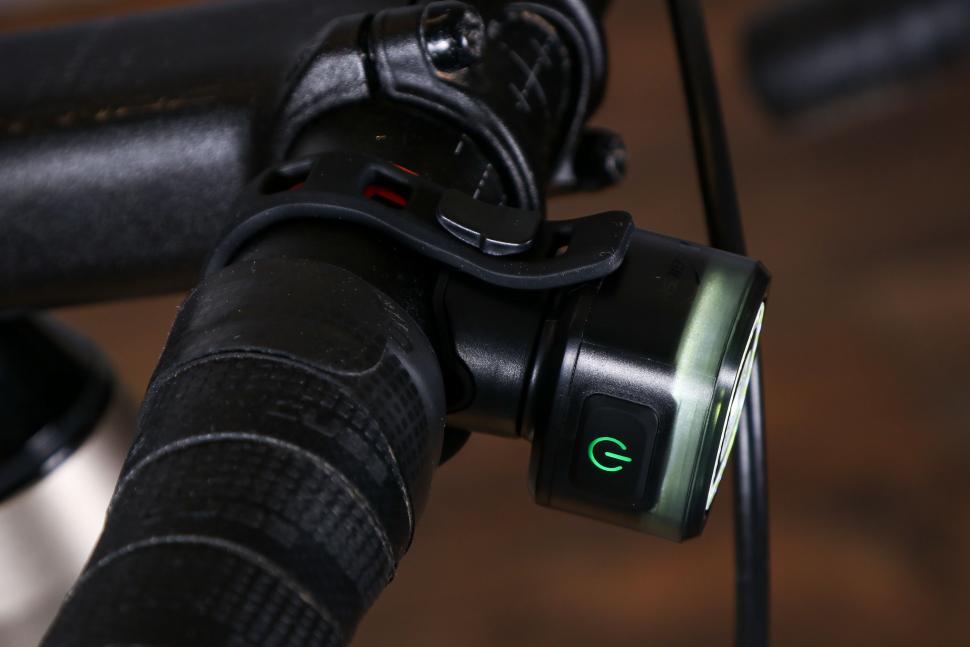
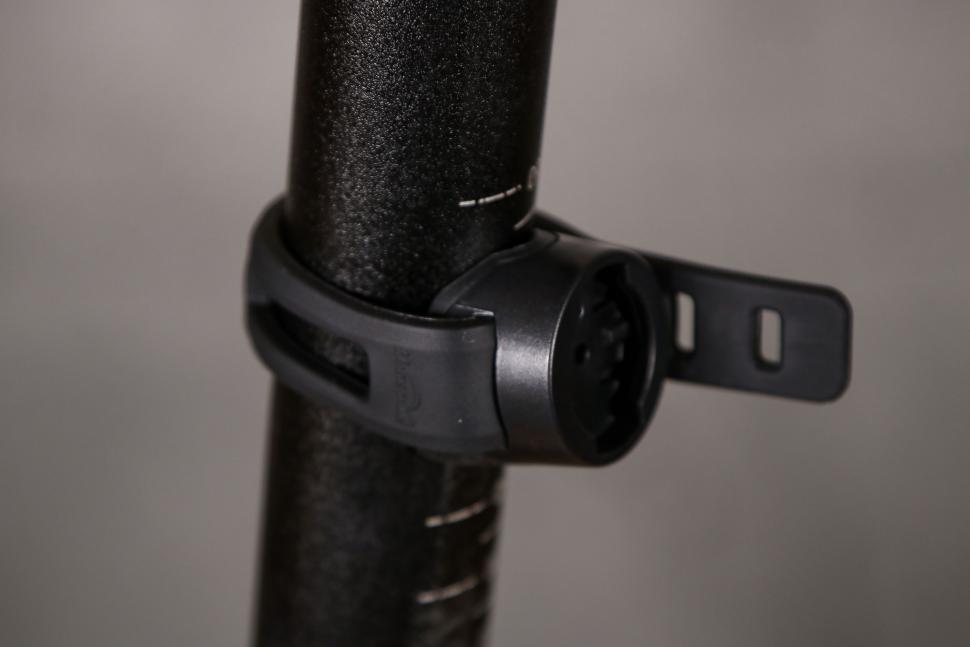
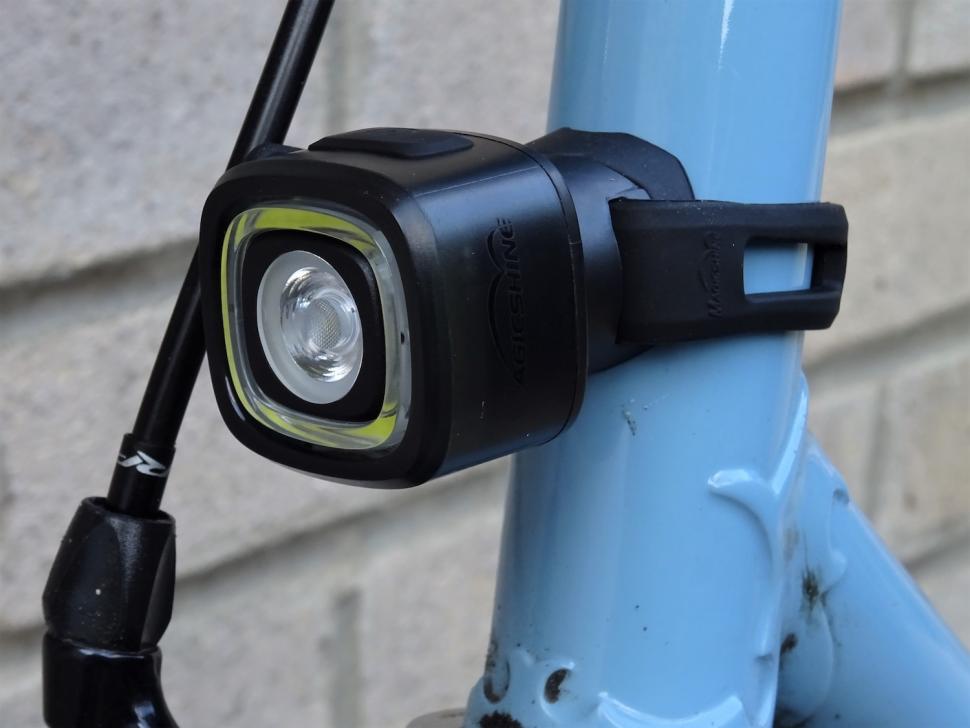











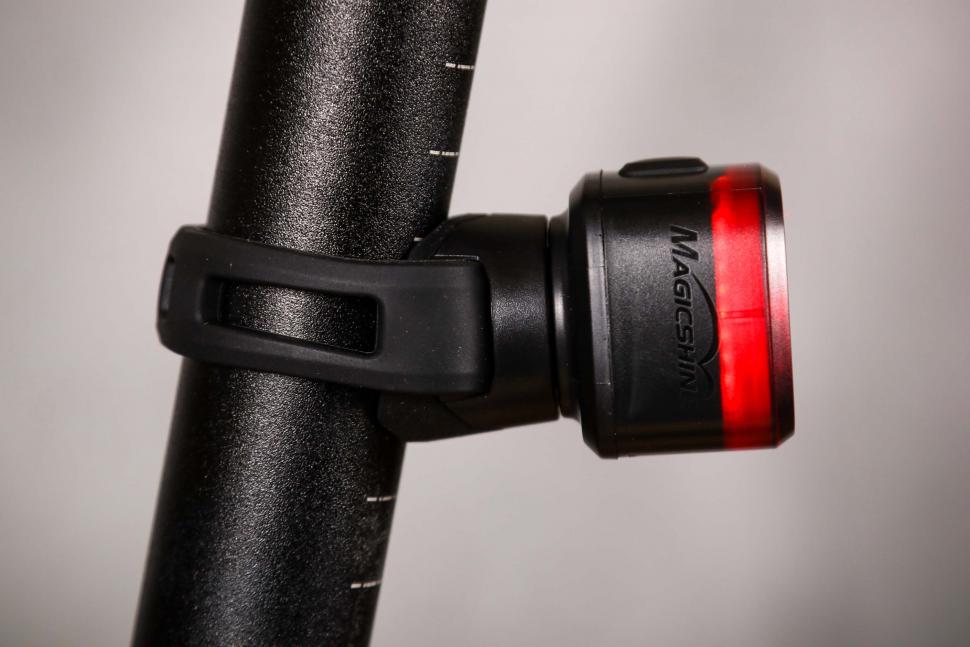

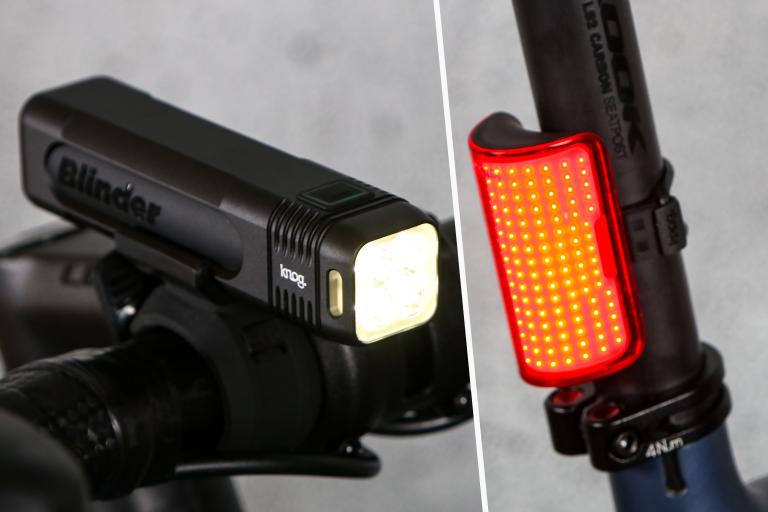

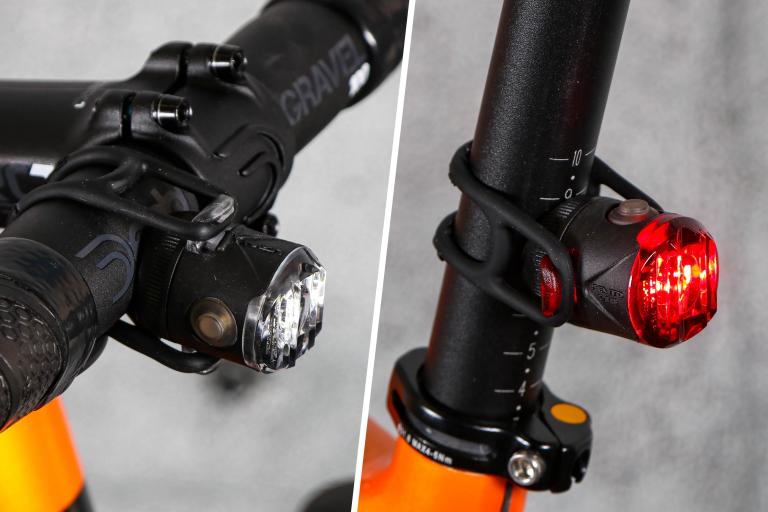
But is it compatible with elliptical chainrings?
Parking fail as car left teetering on top of stone wall Oh dear https://www.devonlive.com/news/local-news/parking-fail-car-left-teeterin...
"As a cyclist myself..."...
Well, you could get a rusty omafiets (would you be happy for it to weight slightly more than double, assuming you've a fairly heavy road bike)? Or...
Well, law isn't engineering......
We must be related!
But why worry if a few people do? It's just not a big deal....
Tempted to get him a sweary birthday cake like in The Thick Of It....
Didn't happen did it? They came into my shop a couple of years back and said it was "on the way", but never heard anything more.
Very parochially, I've still not forgiven Pearson's for abandoning their roots by leaving Sutton.